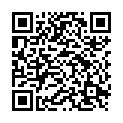|
|
|
| Module code: KI752 |
|
|
1V+1PA (2 hours per week) |
|
2 |
| Semester: 1 |
| Mandatory course: no |
Language of instruction:
German |
Assessment:
Presentation, composition
[updated 20.12.2017]
|
KI752 (P231-0115) Computer Science and Communication Systems, Master, ASPO 01.04.2016
, semester 1, optional course, general subject
KIM-ASTR (P231-0114) Computer Science and Communication Systems, Master, ASPO 01.10.2017
, semester 1, optional course, general subject
MTM.AST (P231-0114) Mechatronics, Master, ASPO 01.04.2020
, optional course
MAM.2.1.1.1 (P231-0114) Engineering and Management, Master, ASPO 01.10.2013
, semester 9, optional course
MST.AST Mechatronics and Sensor Technology, Master, ASPO 01.04.2016
, optional course, course inactive since 27.10.2015
PIM-WN22 (P231-0115) Applied Informatics, Master, ASPO 01.10.2011
, semester 1, optional course, not informatics specific
PIM-ASTR (P231-0114) Applied Informatics, Master, ASPO 01.10.2017
, semester 1, optional course, not informatics specific
PIM-ASTR (P231-0114) Applied Informatics, Master, SO 01.10.2026
, semester 1, optional course, not informatics specific
MST.AST Mechatronics and Sensor Technology, Master, ASPO 01.10.2011
, semester 9, optional course
Suitable for exchange students (learning agreement)
|
30 class hours (= 22.5 clock hours) over a 15-week period.
The total student study time is 60 hours (equivalent to 2 ECTS credits).
There are therefore 37.5 hours available for class preparation and follow-up work and exam preparation.
|
Recommended prerequisites (modules):
None.
|
Recommended as prerequisite for:
|
Module coordinator:
Prof. Dr. Martin Löffler-Mang |
Lecturer: Prof. Dr. Martin Löffler-Mang
[updated 02.03.2010]
|
Learning outcomes:
After successfully completing this module, students will be able to read and understand complex articles from specialist journals (e. g."Sterne und Weltraum" or "Spektrum der Wissenschaften"). Based on what they have read, students will give a talk of approx. 60 minutes on a self-chosen astronomical topic and defend it in a discussion group. In addition, they will also actively participate in the discussion and ask questions on their classmates´ topics.
[updated 24.02.2018]
|
Module content:
Current topics from the field of astronomy, such as for example:
+ In the depths of space and time
+ Where did Saturn get its rings from?
+ Omega Centauri - a superlative globular cluster
+ Gravitational waves
+ How galaxies form
+ Neutron stars and black holes
+ Last year´s comets
+ The current state of large telescopes
+ Radio astronomy: LOFAR results from meteorology to cosmology
+ The formation of periodic meteor showers
[updated 24.02.2018]
|
Teaching methods/Media:
Literature research, lecture and independent observation
[updated 20.12.2017]
|
Recommended or required reading:
Kosmos-Himmelsjahr (almanac)
Sterne und Weltraum (monthly journal)
Spektrum der Wissenschaften (professional journal)
[updated 24.02.2018]
|
Module offered in:
WS 2018/19,
WS 2017/18,
WS 2016/17,
WS 2015/16,
WS 2014/15,
...
|


